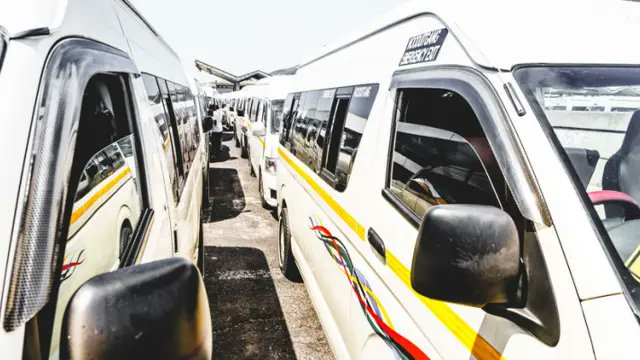News
Durban taxi strike ends, but permit battle leaves commuters and businesses uneasy

A fragile truce after a day of disruption
Durban’s streets, choked with frustration on Thursday, were calmer by late evening when the South African National Taxi Council (Santaco) confirmed it was suspending the strike that left thousands stranded. But while taxis are back on the roads, the fight over operating permits, the spark behind the shutdownis far from resolved.
After marathon meetings between the provincial government, eThekwini Municipality, and Santaco, a task team has been established to deal with daily challenges in the sector. KZN MEC for Transport Siboniso Duma announced the agreement, while taxi leaders stressed that their concerns had not vanishedonly shifted into negotiations.
Permit headaches: outdated databases and frozen recommendations
At the heart of the dispute is the messy issue of taxi operating licences. Santaco’s provincial spokesperson, Sifiso Shangase, argued that an outdated municipal database is making the situation worse.
“Sometimes it looks like one owner has many taxis because old vehicles aren’t removed from the system. That’s why officials claim the market is saturated and refuse to recommend new permits,” Shangase explained.
He called for an independent study to establish exactly how many taxis operate in Durban, how many routes are oversubscribed, and which areas are still profitable. Without this clarity, he warned, both operators and commuters will continue to suffer.
A painful strike for everyone
Thursday’s shutdown came at a steep cost for ordinary Durbanites. Precious Sithole, from the CBD, said she missed a job interview in uMhlanga because e-hailing fares shot up during the strike.
“I had to borrow money from a friend, and even then I was late because rides were scarce,” she said.
In KwaMashu, commuter Phindile Mtshali described a chaotic morning: “Buses weren’t coming into our area. We had to walk far to find one, and when it came two hours later, it was so full people were standing. It was just a mess.”
Even taxi owners, Shangase admitted, took a hit: “This situation is painful, it’s hurting everyone.”
The business community sounds the alarm
Durban’s business leaders are worried about the ripple effects. Palesa Phili, CEO of the Durban Chamber of Commerce and Industry, said the strike disrupted both large and small enterprises.
“Staff shortages, lost income, and reduced productivity are already visible. Informal businesses are especially vulnerable. If disruptions like this continue, they will weaken business confidence in eThekwini,” she warned.
Economist Dawie Roodt echoed these concerns, calling the taxi industry “a force unto itself.” While acknowledging its importance to the South African economy, he criticised its ability to paralyse cities through strike action.
“They’ve become the tail wagging the dog. The economy suffers every time, though thankfully it has also become resilient. We’ll recover, but the damage is real,” Roodt said.
A deeper problem with no quick fix
Strikes by taxi operators are not new in South Africa. The sector, which transports millions daily, has long battled with regulatory red tape, route disputes, and inconsistent enforcement by municipalities.
For many Durbanites, the latest strike highlighted how fragile the city’s transport system really is. With few reliable alternatives, commuters remain at the mercy of an industry struggling to balance profit, legality, and public service.
As the task team prepares to tackle the thorny issue of permits, residents are left hoping that this truce is more than just temporary. Until then, one thing is clear: in Durban, a strike by taxis doesn’t just stop transport, it stops the city itself.
{Source: IOL}
Follow Joburg ETC on Facebook, Twitter , TikTok and Instagram
For more News in Johannesburg, visit joburgetc.com



























